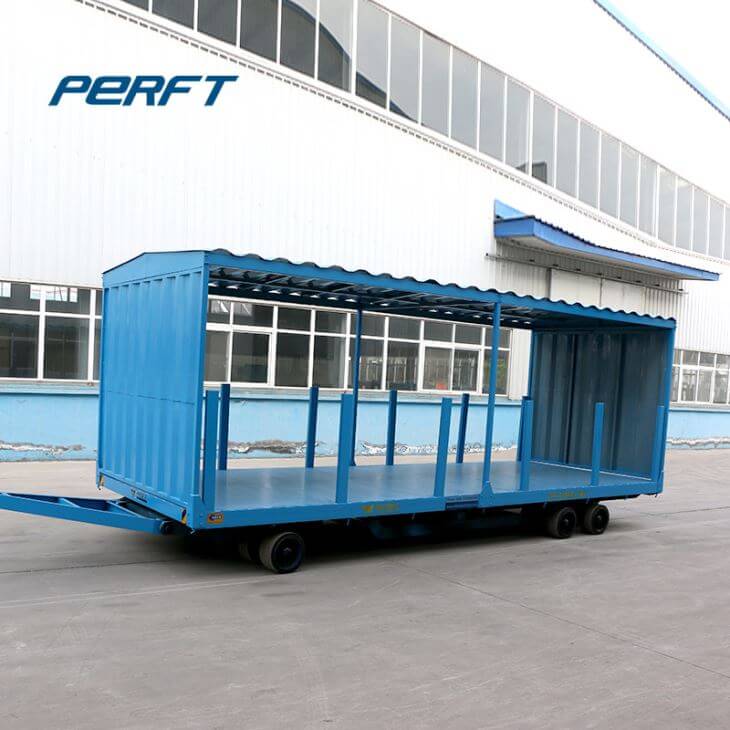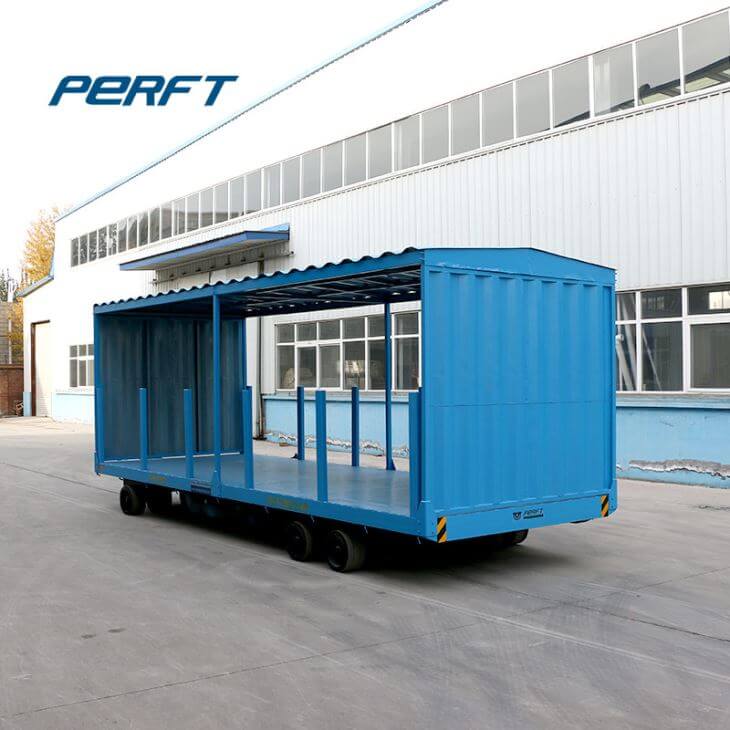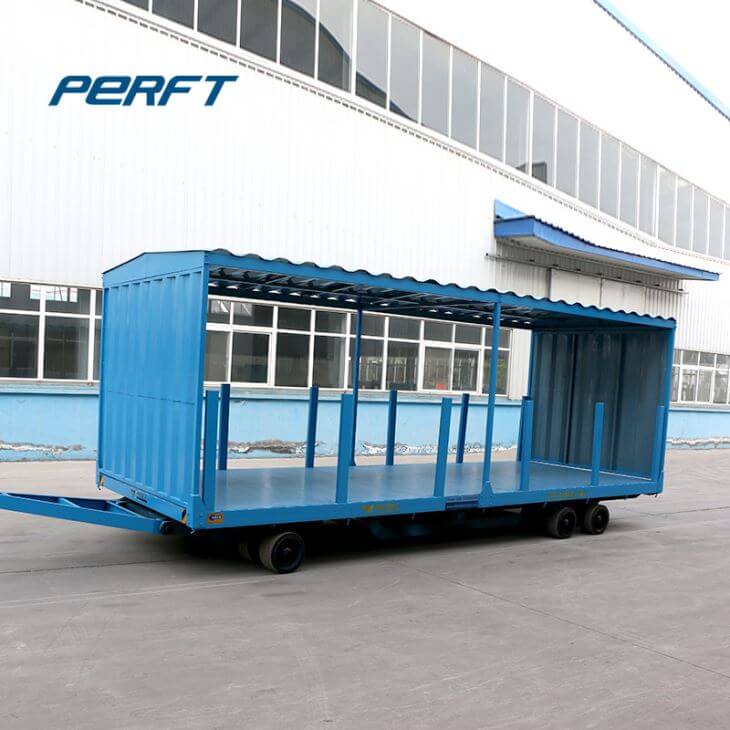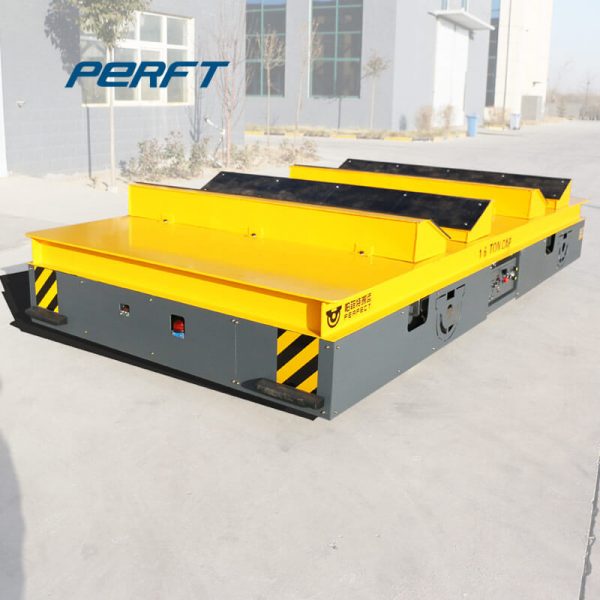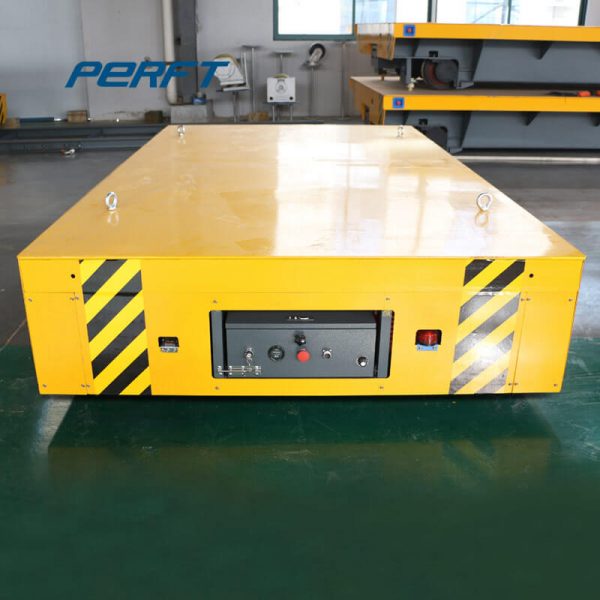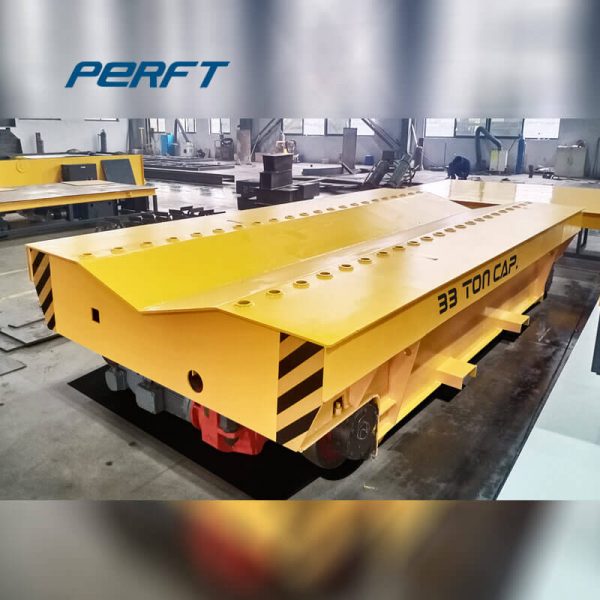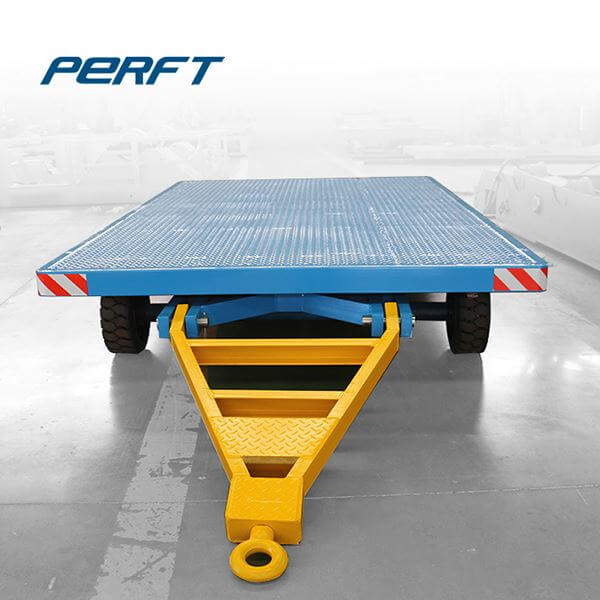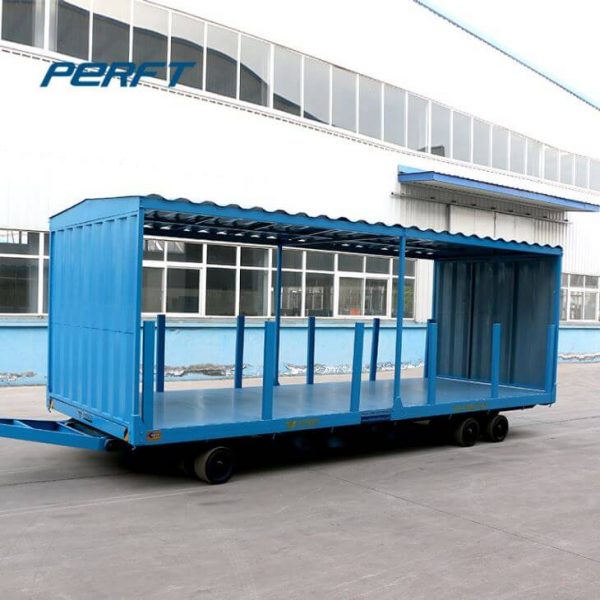- INDUSTRIAL TRAILER
- Ackermann Steering Trailer
- Double Directions Tow Trailer
- General Trailer
- Heavy Duty Trailer
- RAIL TRANSFER TROLLEY
- Battery Powered Transfer Trolley
- Cable Powered Transfer Trolley
- Rail Powered Transfer Trolley
- TRANSFER CART ON WHEELS
- AGV
- Differential steering Transfer Cart
- Hydraulic Steering Trackless Vehicle
- Omnidirectional Mobile Trackless Vehicle
The capacity rating of a rubber wheel or solid tire transfer vehicle depends on the traveling mechanism and the frame or structure. This rating considers the maximum load as a uniform load distribution over the entire deck area. In addition to the maximum weight of the expected load, the possibility of impact loading due to misuse of loading or unloading techniques and obstacles on the floor should also be considered. Larger floor defects or debris will severely impact the top four-wheel steering transfer vehicle and its loaded cargo, and the cargo dropped from a forklift or overhead crane will also be impacted.
Basic design
The deck is important, but the content below it is even more important. The running gear or wheel system, including the steering part, is critical to performance and service life. The walking device will affect the stability, tracking force, and pulling force. There are at least five basic categories of steering systems: caster steering, fifth-wheel steering, four-wheel steering, automatic steering-two wheels, and automatic steering-four wheels. They all have the inherent ability of Topper Quad steering carts-they follow a consistent path (each Topper Quad steering cart roughly tracks in the previous footprint). As one might guess, the difference in cost and performance.
Advantages of Rubber wheel or solid tire transfer vehicle
- The manual connector requires someone to put the tongue of the wishbone into or down the eyes installed on the adjacent flip four-wheel steering transfer vehicle.
- It can be difficult to manually place the Toper four-wheel steering system around the factory or warehouse floor.
- One end of the caster-steering loading and unloading four-wheel steering transfer vehicle has the advantage of a handle, while the superstructure of other top loading and unloading four-wheel steering transfer vehicle is unlikely to have a structure that pushes the lever.
- When all other conditions are the same, the caster-steered clamshell four-wheel-steer transfer vehicle is easily the best choice for manual operation. Obviously, the best situation is to move and unload a portable four-wheel steering transfer vehicle.
- The reversible steering allows the operator to disconnect the traction tongue from one end and then reconnect it to the other end. If the top four-wheel steering transfer vehicle is to be used on a train, this function may cause malfunctions at both ends.
- The industrial clamshell four-wheel steering transfer vehicle has almost no daily maintenance requirements. But ignoring it completely can be counterproductive, and it is best to perform regular maintenance to extend its life.

